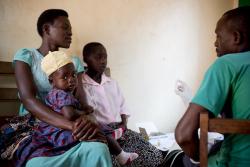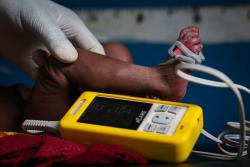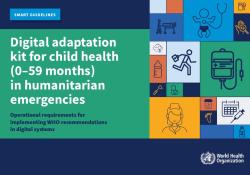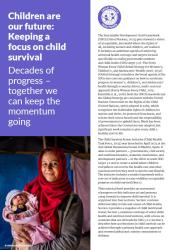OUR GOAL
Strengthen comprehensive child health programs for all - focused on children aged 0-19 years in line with Global Strategy for Women’s, Children’s and Adolescents' Health (2016-2030) - through primary health care, inclusive of community health systems.




